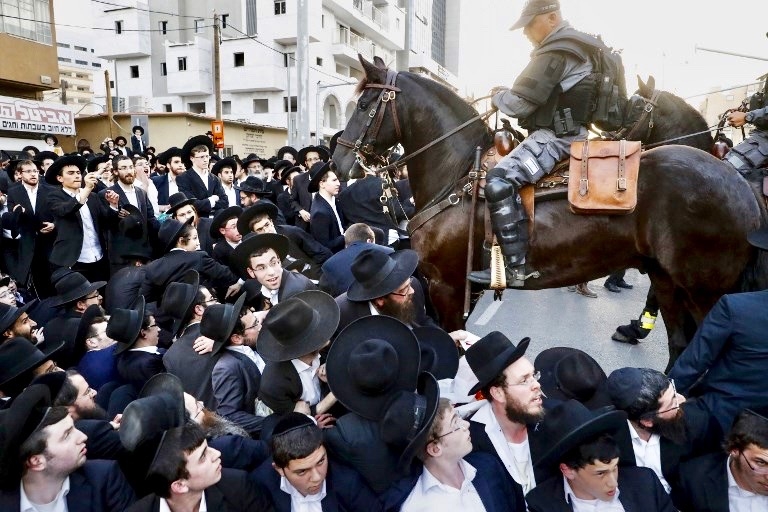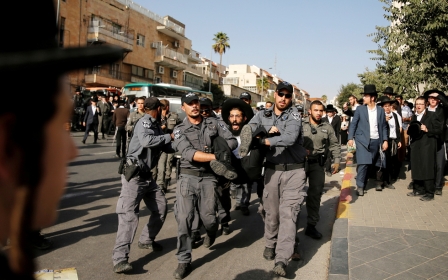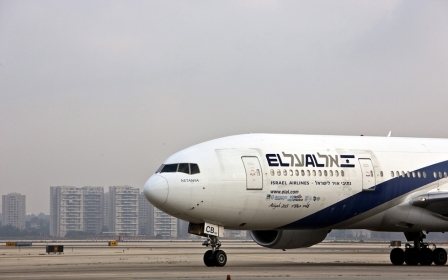Israel police use stun grenades against ultra-Orthodox 'riot'

Israeli police used stun grenades on Sunday to try to calm a violent protest by ultra-Orthodox Jews in Jerusalem, the latest angry demonstration against the military draft.
A police statement said four officers were slightly injured in scuffles as law enforcement tried to disperse "several hundred ultra-Orthodox extremists" outside an army enlistment office.
"Police used stun grenades and water cannon against rioters," police spokesman Micky Rosenfeld told AFP. Police did not say if any of the protesters were arrested.
Israeli law requires men to serve two years and eight months in the military on reaching the age of 18, while women must serve for two years.
Demonstrators were protesting against the intention of military police to arrest an ultra-Orthodox girl who was being held in the enlistment office, the Jerusalem Post reported.
Ultra-Orthodox men are excused from military service if they are engaged in religious study, but must still report to the army to receive their exemption.
Some seminary students have refused even to do that.
There have been protests since the beginning of March, after the arrest of a young ultra-Orthodox man who failed to show up to request an exemption after receiving a call-up notice.
Last month the issue sparked a crisis in Prime Minister Benjamin Netanyahu's factious coalition government, with ultra-Orthodox parties threatening to torpedo a crucial budget vote.
The crisis was resolved with a compromise in which the ultra-Orthodox supported the budget, while Netanyahu promised to give coalition MPs freedom on how to vote on a future bill on draft exemptions.
Still, hardline ultra-Orthodox youngsters continue to block roads and scuffle with police in Jerusalem and elsewhere, in protests against military service.
New MEE newsletter: Jerusalem Dispatch
Sign up to get the latest insights and analysis on Israel-Palestine, alongside Turkey Unpacked and other MEE newsletters
Middle East Eye delivers independent and unrivalled coverage and analysis of the Middle East, North Africa and beyond. To learn more about republishing this content and the associated fees, please fill out this form. More about MEE can be found here.




